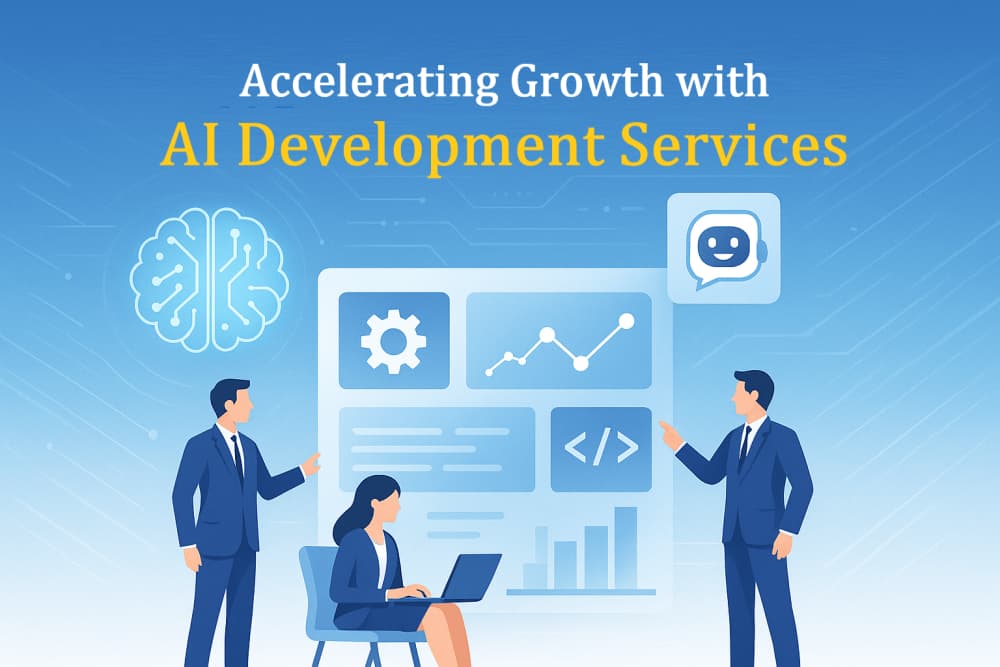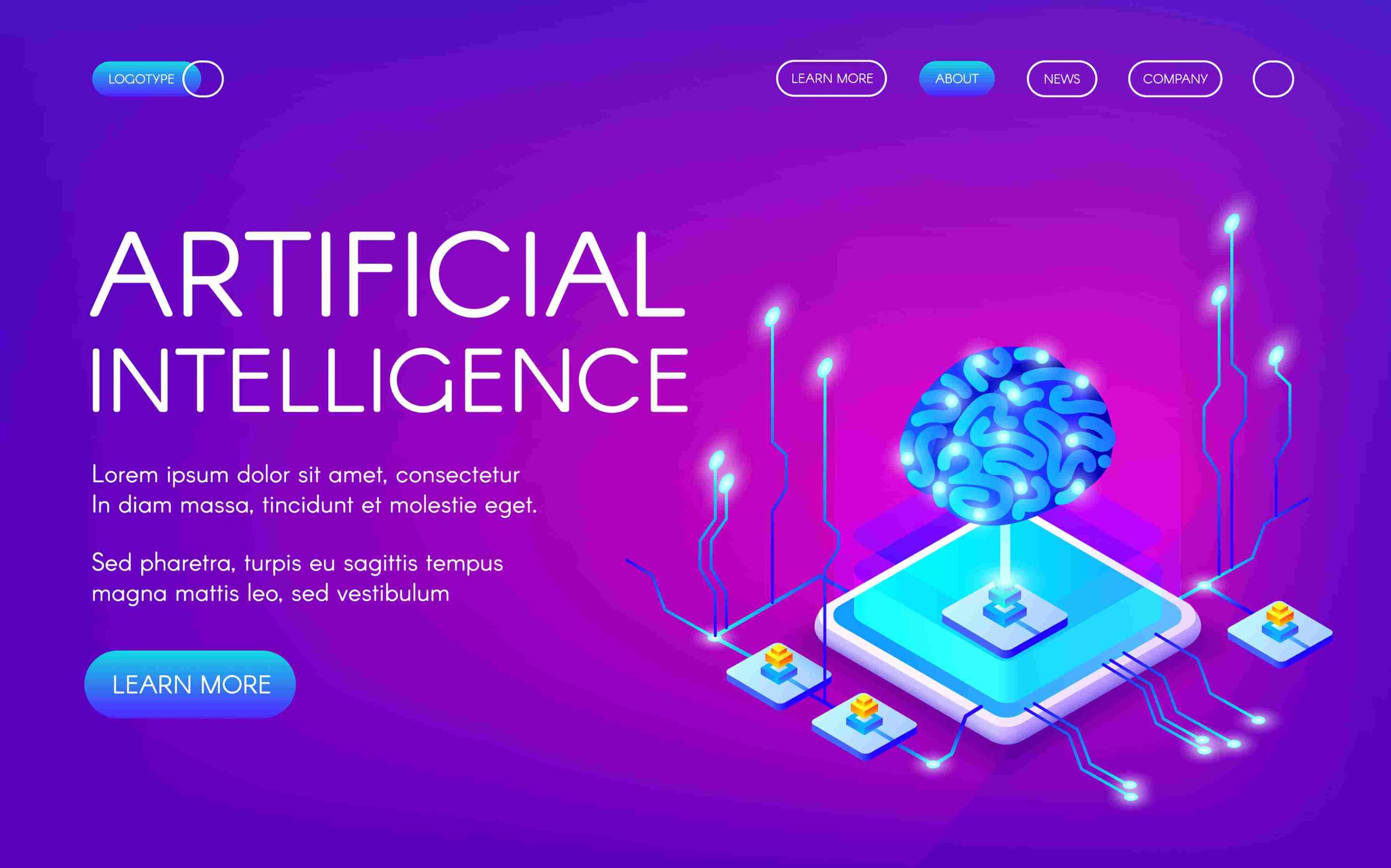
AI development services are reshaping how businesses work in today’s digital world. Organizations across industries now use these smart solutions to streamline their operations and create improved customer experiences.
Businesses that team up with AI development companies get access to experts in machine learning, natural language processing, and automated decision-making systems. Smart companies collaborate with AI service providers to stay ahead of their competition. AI services help organizations analyze big data sets, discover useful patterns, and create tailored customer experiences at a large scale.
This piece shows how AI development services help businesses grow faster. It looks at core technologies, real-world applications, and practical ways to turn innovative ideas into working solutions.
Understanding AI Development Services
“AI will be the most transformative technology of the 21st century.” — Fei-Fei Li, Professor of Computer Science, Stanford University; Co-Director, Stanford Human-Centered AI Institute
Modern businesses need innovative solutions to stay competitive. Artificial intelligence services provide a detailed range of capabilities that help organizations build intelligent systems for their specific needs.
Key Components of AI Development Services
AI development services include a wide range of offerings that solve specific business challenges. Custom AI development leads the way by creating tailored solutions for unique business requirements. These solutions also include AI-powered chatbots for customer support or automated inventory management systems.
Expert consultations help businesses find suitable AI implementations for their particular challenges. These consultants assess company needs, recommend the right AI solutions, and guide the implementation process.
Types of AI Technologies Used
Several core technologies form the foundation of successful artificial intelligence services. Machine learning algorithms help systems learn from data, recognize patterns, and make predictions without requiring explicit programming. These algorithms continuously improve through iterative learning and improve their accuracy using advanced computational techniques.
Natural language processing (NLP) gives AI systems the power to understand, interpret, and generate human language. This enables smooth communication between humans and machines.
Computer Vision enables AI systems to analyze and interpret visual data and make decisions based on what the machine “sees”. Manufacturing, healthcare, and autonomous vehicle industries have been transformed by the ability of Computer Vision to interpret visual information accurately.
Key Components That Drive AI Success
Several key technological components must work together for successful AI implementation. Businesses that partner with an artificial intelligence development company get specialized expertise. Each component plays a unique role in creating AI solutions that work.
1. Machine Learning and Predictive Analytics
Machine learning allows systems to learn from data, recognize patterns, and make predictions without requiring manual rule-based coding. Statistical techniques in predictive analytics estimate future outcomes based on historical and current data. These capabilities help businesses improve efficiency. AI-powered systems now complete tasks in minutes that once took hours or days to complete.
Decision trees, regression analysis, and neural networks are common predictive models. Organizations use these models to forecast customer behavior, optimize inventory, and identify potential risks. Many businesses have decreased operational costs as a direct result of implementing AI.
2. Natural Language Processing (NLP)
Natural Language Processing (NLP) enables machines to comprehend, analyze, and produce human language. Chatbots, voice assistants, and language translation services run on this technology. NLP also boosts data analysis by extracting analytical insights from unstructured text data, including customer reviews and social media posts.
Companies use NLP to automate customer support, process documents, and analyze sentiment in text. This powerful technology has played a pivotal role in advancing generative AI. It enhances large language models’ ability to understand and generate human-like communication.
3. Computer Vision and Image Recognition
Computer vision teaches machines to ‘see’ by extracting meaningful information from visual inputs. The technology analyzes patterns by breaking images into pixels and predicts what it observes. It performs tasks like object detection, facial recognition, and visual inspection.
4. AI Automation and Intelligent Agents
AI agents are autonomous, decision-making entities that observe their environment, plan actions, and execute tasks. Unlike traditional software, these intelligent agents adapt and learn from experiences. They create business value through process automation, human collaboration, and data insight discovery.
The rapid adoption of artificial intelligence services highlights their importance for businesses seeking to automate complex workflows. Experts predict that 33% of enterprise software applications will include agentic AI by 2028, up from less than 1% in 2024.
From Planning to Execution: Building with an AI Development Services Provider
Making AI vision a reality needs a well-planned approach from start to finish. Companies that succeed with artificial intelligence services follow a step-by-step process. They align technology to match their business goals. The process starts with setting clear goals, choosing the right partner, integrating AI into existing systems, and conducting thorough testing.
Defining Business Goals and AI Use Cases
Companies need to set clear objectives that solve specific challenges before they start their AI experience. McKinsey’s research highlights that companies should focus on three areas to find AI opportunities: repetitive low-value tasks, skill bottlenecks, and handling uncertainty. Companies should rethink processes from the ground up instead of forcing AI into current methods.
Choosing the Right Artificial Intelligence Development Company
Consider the following factors while choosing an artificial intelligence development company:
- Proven Expertise: Look at case studies of similar projects in your industry to check their track record
- Technical Capabilities: Check their experience with AI technologies that align with your needs
- Data Handling Approach: Learn their methods for data collection, cleaning, and model training
- Support Commitment: Ensure they provide maintenance and optimization after deployment
Integrating AI into Existing Systems
Legacy systems create unique challenges for AI integration. Companies must fix data compatibility issues between new AI tools and current systems. The integration process should:
- Unify scattered data into centralized data lakes
- Use middleware solutions to connect AI systems with legacy platforms
- Use modular integration to protect the existing architecture
Testing, Deployment, and Ongoing Support
To ensure accuracy and reliability before full implementation, teams should conduct thorough testing. They must use separate validation datasets to check performance against accuracy and precision metrics.
A step-by-step deployment approach yields the best results. Companies can use canary deployments or A/B testing to introduce models gradually while minimizing risks. Regular monitoring helps maintain performance.
Conclusion
AI development services have become powerful tools that transform businesses. Machine learning, natural language processing, computer vision, and intelligent agents work together to revolutionize AI development. These technologies help companies analyze data better and automate complex tasks.
An increasing number of companies today are using artificial intelligence services. Those who accept new ideas in AI technology set themselves up for lasting growth and a competitive edge. AI implementation needs careful planning, but the benefits make it worth the investment.





